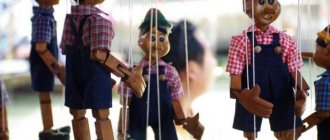1 3776 March 29, 2021 at 02:41 pm Author of the publication: Ekaterina Krestnikova, doctor - psychiatrist-narcologist Editors: Evgenia Alekseeva, doctor; Diana Kirss, family doctor
The article is based on a clinical case.
From the patient's story:
I have a fear of loud noises. I especially dislike the noise of traffic, which is why I sometimes cannot leave the house and prefer a taxi. Fear of various sounds: the screams of neighbors' children behind the wall, barking dogs. I try to avoid any noise, but it is very difficult to be in silence all the time: the whole world around me is screaming. I wear earplugs all the time; it’s impossible to go outside during the day without them. It's even more worrying when I'm around people who talk a lot or make a lot of noise.
It’s also unpleasant for me to listen when people talk about everyday topics; I can’t listen to empty conversations about food, clothes, and so on. I suffer at work because of this. When I hear the sharp, loud sounds of their speech, I am afraid that my head will explode. Noise makes it difficult to concentrate on work and perform your responsibilities. Whenever possible, I go out to a quiet place, drink tea, and calm down. If it’s not possible, I endure it and cover my ears with my hands. I'm afraid of loud and sharp sounds, and they are everywhere! When it doesn’t help, I break down: “Maybe stop yelling already? Stop it!” Although in reality I want to say: “Shut up, everyone, you’re stopping me from thinking!” I'm afraid of sharp sounds. I'm afraid of going crazy because of this. What is wrong with me?
A young woman, 34 years old, tells me all this at the reception. Lonely, withdrawn, not married. As she herself says, you can count your friends on your fingers. And she doesn’t strive for communication: “People are so primitive.” And all her few friends tend to talk about the meaning of life. Two of them practice meditation. She communicates mainly through correspondence. Her life looks like work-home-work. She avoids large companies and noisy parties. He asks: “Do I have a phobia, fear of loud noises? What should I do? How to treat phonophobia? Help!"
The history of her life clearly shows the reasons for her conditions, which I will comment on below.
The patient grew up with her parents and younger brother. The difference between her and her brother is 14 years. When my brother was born, all the worries about him were given to the older sister - “you are the eldest, so do your work, and we earn money for you and him.” Mom and dad often argued and quarreled, and my father drank. I often heard my mother say that she would like a more obedient daughter, that her daughter was not good enough, that it would be better if she had been “born differently.” Her father told her as a child that she “wouldn’t achieve anything, she’d be a fool like her mother.” She grew up on her own, read books, studied, and then worked a lot for her family. Even as a child, she avoided noisy crowds of people and was afraid of sharp and loud sounds.
The patient obediently took care of household chores and her younger brother. She changed his diapers, walked him, taught him to read, checked his homework. After school, she entered the university with a degree in Computer Science and studied programming. However, she did not complete her education, as her parents decided that there was little money in the family and sent their daughter to work. Earnings included MLM, washing floors, working in a factory and in an office.
The patient now lives with her parents. Father and mother are already retired. The woman often reads books on psychology, from time to time she gets interested in spiritual practices, but she is already disappointed in almost everything. There is almost no interest in life, only work that you have to go to. The patient shared that recently she began to think about the meaninglessness of her life and the meaninglessness of the existence of humanity as a whole. He can’t find his place in life and doesn’t know why he lives.
Causes of fear
Events influence the human psyche. Participants in military operations came under fire. In peaceful life, they remain afraid of sharp sounds. The child hears his parents screaming during quarrels. He grows up, but the fear of sharp or loud sounds remains. This fear arises for the following reasons:
- Tragedies of the past. Fear of loud sounds occurs among witnesses or participants in car accidents, train accidents, or terrorist attacks.
- Natural disasters. Natural phenomena such as thunderstorms and tornadoes cause panic. People are hiding in their homes. Hearing thunder is unbearable for them.
- Horror films. They are for people with strong nerves. Don't get carried away by horror if you flinch at unexpected sounds and hide under the covers when monsters and monsters appear on the screen.
The child is frightened by electrical appliances. They make noise, buzz, whistle, rumble. A child may have a tantrum when turning on a vacuum cleaner or hair dryer.
Why does phonophobia (acousticophobia)—fear of loud sounds—occur?
The fear of loud sounds is called phonophobia or acoustic phobia. To understand its origin, let us pay attention to the psychological characteristics of the patient discussed above. She is a clear representative of the sound vector. A feature of such people is hypersensitive hearing, a low threshold of hearing. Sounds that are normal to others may be perceived as painfully loud and therefore make them want to cover their ears. It's like hitting a person with particularly sensitive skin - it will hurt more than usual. Like no one else, they are sensitive to the meaning of words.
A person with a sound vector is born an introvert, focused on his own internal mental states, and with proper development he turns into his opposite - to focus on the mental states of other people, that is, extroversion develops in the sound vector. When a sound student grows up in an unfavorable sound environment as a child, he does not acquire the skill of going outside, but, on the contrary, withdraws to the point of selective contact. “I can’t communicate with other people, they talk nonsense and don’t understand me,” the woman shares with me.
Thus, if in childhood a sound person was traumatized by loud sounds, parental scandals, and unwanted meanings of words, then he will be more prone to introversion. He will withdraw into himself so as not to hear these sounds and words that traumatize his psyche. Often this is one of the causes of phonophobia.
Symptoms
People who are afraid of sharp sounds experience the following symptoms:
- cardiopalmus;
- increased sweating;
- dry mouth;
- pale skin;
- increased blood pressure;
- dilated pupils;
- trembling of hands and feet;
- numbness of fingers;
- dizziness;
- muscle tension;
- loss of self-control.
In severe cases of the disease, panic attack syndrome may develop. It will lead to a serious mental disorder - neurosis. Treatment is long-term, over several years.
Increased blood pressure accompanies a fear attack
How to get rid of phonophobia
You can get rid of a mild phobia on your own. If you have moderate to severe fear, you should consult a psychologist.
Fighting fear on your own
For self-help purposes, you can use auto-training, relaxation and breathing exercises. The purpose of the classes is to learn to control your emotions and switch attention.
Getting rid of phobias through meditation
The purpose of meditation is to get closer to your inner self. Try to listen to your subconscious. It is necessary to find harmony between body, soul and thoughts. You need to hear what exactly is bothering your inner self.
Conditions for meditation:
- study in a clean and bright room, ventilate the room;
- exercise at the same time every day;
- concentrate on breathing.
How to do meditation:
- Sit down and close your eyes, keep your back straight.
- Inhale deeply through your nose, hold your breath for five seconds and exhale through your mouth. Repeat several times.
- Train your thoughts. To begin, imagine placing your hand on your heart. Feel it (do not touch, act only with your thoughts). Then imagine other touches.
- Keep breathing. As you inhale, say “there,” and as you exhale, say “there.”
- Try not to think about anything, concentrate on your feelings. If you can’t get rid of thoughts, then say “These are empty thoughts, and they will soon dissolve into oblivion. I'm not afraid of loud noises."
Approximate meditation time is 10 minutes. But it’s better to focus on your feelings. Meditate until you feel completely relaxed and calm.
Psychotherapy
Professional treatment consists of psychotherapy and medication (if necessary). Antidepressants, tranquilizers and sedatives are prescribed among the medications.
It is important! You cannot self-medicate. Only a specialist can prescribe a drug, determine its dosage and course of treatment. Incorrect treatment is dangerous due to the development of side effects and addiction.
Methods of psychotherapy include hypnosis, neurolinguistic programming, and cognitive behavioral psychotherapy:
- During hypnosis, the client is put into a trance with the help of positive statements, achieving complete relaxation and opening of the subconscious. After this, at the subconscious level, as if on a disk, new settings are recorded. Hypnosis helps both to determine the cause of a person’s fear of loud sounds and to overcome it.
- In cognitive behavioral therapy, the client is gradually immersed in fearful situations. Getting closer to fear occurs under the supervision of a psychologist. The doctor helps to develop and learn to apply new response models.
- Neurolinguistic programming works not with the client’s past, but with the present. A specialist helps to realize the irrationality of perception of reality, reveal personal potential and change the attitude towards the stimulus.
In addition, music therapy has a positive effect. The specialist plays relaxing music, gradually increases the volume, and then decreases it again.
It is important! Treatment methods are selected on an individual basis. The severity of the disease, the characteristics of the client, and the specific manifestation of the phobia are taken into account.
What are phonophobes afraid of?
People have specific objects and events that frighten them. These include:
- Balloons. A person is afraid to be near inflated balloons. At the mere thought that the balloon might burst and make a loud sound, the phonophobe's palms sweat and knees tremble. Inflating the balloon yourself is out of the question.
- Musical toys. Children cry if the sound of a toy frightens them. It may be a cheerful tune, but it is too loud for a baby. A child may have fear for the rest of his life.
- Loud voice. Phonophobe does not like airports and train stations. He is afraid to imagine that he will hear the loud voice of the dispatcher. A person does not go to public places where it is always noisy.
- Bird sounds. People can't stand it when flocks of crows circle overhead. This chorus of ominous croaks is associated with aggression. The next step is an attack. These birds are considered residents of the cemetery. Meeting them makes you think about death.
- Pyrotechnics. On New Year's Eve or Victory Day, the phonophobe will stay at home. He has already soundproofed the apartment so as not to hear frightening sounds.
It is impossible to predict what will trigger a panic attack.
Sitting at home or hiding from sounds every time is not an option. This way you will miss a lot of interesting things in life.
Phonophobe fears balloons that burst with a loud sound
Causes of phonophobia
Loud music, conversation in a raised voice, noisy renovation work - this and much more cause anxiety in a phonophobe. A person does not feel safe when he hears noise. And he perceives a person with a naturally loud voice as an aggressor. Where did this setup come from? The reason must be sought in childhood.
Childhood psychotraumas
Most often, people who grew up in unfavorable conditions of tyranny and authoritarianism suffer from phonophobia. Parents' scandals, breaking dishes, slamming doors, screaming, insults and reproach, criticism are the prerequisites for phonophobia. Or maybe it was the kindergarten teacher who brought up her charges with a whip and scream.
For the development of a phobia in childhood, one fear is enough. For example, someone decided to play a trick on a child and suddenly burst a balloon in front of him. Or the child accidentally broke a vase and was frightened by both the sounds of broken glass and the mother’s further screams.
Reasons in adulthood
In adulthood, the cause of a phobia may be associated with an accident or personal negative experience. A phobia can develop if a loud sound precedes or accompanies a tragic event. For example, a person in a noisy place learned some unpleasant news. Or he was an unwitting participant in a terrorist attack, an accident, or a house collapse. Or something unpleasant happened at a noisy party. In people who served in the military or hot spots, acoustic phobia may be part of post-traumatic stress disorder (PTSD).
If a person experiences anxiety near a loudspeaker, radio, telephone or alarm clock, then this indicates associations with difficult, unpleasant times or hardships of the past. Maybe the patient is afraid of someone calling or is so tired at work that any call scares him. Or a person is exhausted and dissatisfied with his life, because the alarm clock scares him (associated with an unloved job and daily torment). Or the person had to live in a city with a special regime, where important news was announced over loudspeakers. Or the patient is afraid of a declaration of war, a natural disaster, etc.
It is important! The true cause of a phobia can be very unexpected; each case requires individual consideration.
Treatment of fear
The psychotherapist will make a diagnosis and prescribe treatment:
- Tranquilizers: phenazepam, midazolam, buspirone. Help relieve anxiety and fear.
- Psychotropic drugs: deloxetine, venlafaxine, milnacipran. Prescribed for depression.
- Sedatives: novo-passit, nozepam, barboval. They have a sedative effect.
You can treat fear using unconventional methods:
- Neurolinguistic programming. Modeling verbal and nonverbal behavior produces results. Opponents of neurolinguistic programming talk about the danger of restructuring the psyche.
- Hypnosis. Patients are wary of this method. In a state of trance, they can tell something that an outsider does not need to know. Those who decide to undergo hypnosis will feel improvement after the first sessions.
- Sound therapy is the use of contrasting melodies. First, the patient listens to a calm melody, then a loud one. And such a change of compositions occurs several times during the session.
A person who experiences fear is constantly tense. He expects to hear a loud sound at any moment and will not be able to control his emotions. A doctor can help you cope with this condition.
Signs and manifestations of phonophobia
A phonophobe tries not to visit noisy places (streets, shopping centers, concerts, public transport, cafes). He avoids contact with children, animals, and loud-voiced friends. Some people have to give up a profession if it involves noise. Only at home, where there is soundproofing and thick windows, and all possible sources of unpleasant sound are turned off or destroyed, does the patient feel safe. In short, phobia leads to isolation.
The emergence of phonophobia due to illness
A phobia can develop against the background of psychasthenia, neurasthenia, or VSD. And also increased sensitivity to sounds is a symptom of myophonia, hyperacus, Asperger's syndrome, Meniere's syndrome, autism, and hormonal imbalance. If the phobia is caused by another disease, then the primary pathology must be treated.
Phonophobia in children and adolescents
Acoustic phobia is more common in childhood and adolescence. This is explained by age-related increased sensitivity to sounds and an unstable psyche due to age. Children are often tired and overexerted, which also contributes.
Teenagers are often ashamed of their fear. They try to hide it. The phobia forces the teenager to avoid noisy companies and sports competitions. Due to their age, teenagers can react aggressively and take out their irritation on others.
It is important! Fear of loud noises in children is often part of another phobia. Until a certain time, this is considered the norm, but if a fear of loud sounds haunts a child for six months or longer, then you need to consult a psychologist.
Phonophobia in adults
Psychological manifestations of phobia in adults include:
- the desire to avoid contact with irritating sounds or to end contact as soon as possible and in any way;
- panic attack upon contact with an irritant (feeling of imminent death, inappropriate actions, attempts to hide, fear of going crazy).
In advanced stages of sound phobia, a person tries to mask the fear with alcohol. In addition to addictions, the condition is aggravated by nervous exhaustion and sometimes depression. During a panic attack, a person does not control himself, can be aggressive, and strives to destroy the source of the sound.
A panic attack is accompanied by somatic symptoms:
- dyspnea,
- tachycardia,
- dizziness,
- nausea,
- hyperhidrosis,
- convulsions,
- feeling of suffocation
- shiver,
- headache.
If a phonophobe is very sensitive to sounds, then this prevents him from sleeping. Constant tension and lack of sleep further worsen the condition.
How to cure neurasthenia?
There are several approaches to this:
The maximum benefit comes from a combination of both methods of treatment: on the one hand, medical treatment, which can alleviate the patient’s suffering at a particular moment, and on the other hand, psychoanalysis, which will help to get to the bottom of the deep sources of the problem, by understanding which it will be possible to prevent subsequent occurrences of the disease.
It is necessary to treat this disease and this must be done by an appropriate specialist psychotherapist, in order to avoid the disease from flowing into more complex diseases or becoming a chronic disease. The consequences of neurasthenia usually plague people who have not received proper treatment. For example, an irritation reaction to loud noises or strong odors may persist. Depending on the characteristics of a particular individual (for example, people prone to narcissism or depression), the disease may be difficult to cure and there is a very high probability of it becoming chronic even with timely treatment.
lecheniedepressii.ru
What symptoms occur during an attack of claustrophobia?
The main symptom of an attack is irrational fear, which the patient practically cannot resist, although he realizes that the danger to him in this situation is minimal. It is accompanied by the following autonomic symptoms: • Tachycardia (rapid and increased heartbeat). • Breathing disorders - it becomes more frequent and is accompanied by a feeling of lack of air. • Trembling – the patient literally shakes with fear. • Increased sweating. • Dizziness with lightheadedness.
These symptoms may also be accompanied by abdominal discomfort in the form of nausea, pain in the epigastric region, and gastrointestinal spasms. This is reminiscent of the so-called “bear disease” (irritable bowel syndrome), often triggered by severe stress. Autonomic failure can be so severe that it can lead to dangerous arrhythmias, temporary cessation of breathing (patients feel as if they have stopped breathing) and even loss of consciousness.
Causes of logophobia
Stuttering
Logophobia is expressed to a greater extent in neurotic stuttering, and to a lesser extent in neurosis-like stuttering. In the presence of relatives and well-known people, there may be no fear of speech, but when surrounded by strangers, in an unfamiliar environment, the situation gets out of control. Logophobia can intensify during a telephone conversation, communication with a person of the opposite sex, peers or adults.
Speech neurosis is expressed in an obsessive fear of developing convulsive hesitations when pronouncing a sound, word, phrase, sentence. Anxiety and anxiety grow due to the fear of being publicly ridiculed. Anxious anticipation is a factor that further constrains the phonation, articulatory, and respiratory muscles. Therefore, as speech begins, convulsive hesitations intensify. In this state, the stutterer says not what he planned, but what is easier for him to say. Sometimes a person becomes completely silent, stops answering questions, and withdraws into himself.
As a result of logophobia, the patient over time begins to avoid oral speech contacts and tries to communicate more in writing. Constant difficulties in speech cause the development of neurotic reactions. Sometimes the consequence of fear of speech is touchiness, anger, and excessive aggressiveness.
Mutism
The severity of logophobia can be so strong that a person prefers not to speak at all in certain situations. Elective (selective) mutism develops.
The patient stops communicating with people who cause him negative emotions, anxiety, fear: he does not speak to them, does not answer questions. At the same time, verbal contact with other people is preserved, speech understanding is not impaired, written speech is normal. Sometimes logophobia manifests itself in silence in strictly defined places (kindergarten, school, section) where the patient feels uncomfortable.
Diction defects
Distorted, non-standard pronunciation of sounds often becomes the cause of logophobia in adolescents and adults. Awareness of one's defect (lisp, burr), pronounced national accent or local dialect (okanya, gekanya) in a correctly speaking environment can cause reluctance to engage in verbal contact, refusal to communicate, and monosyllabic answers.
Others may regard such manifestations as arrogance and demonstrative behavior, but in reality this hides embarrassment, the fear of being “not like everyone else,” of being the object of ridicule and mockery. When speaking, people with defects in sound pronunciation try to avoid difficult sounds or pronounce them quietly, at an accelerated pace, wanting to quickly “slip through” and make their problem less noticeable to others.
Social phobia
This form of logophobia is not associated with speech disorders and mental disorders. The fear of speaking in public may hide childhood fears, criticism from parents and teachers, and negative experiences from previous public speaking that ended in failure.
Manifestations of logophobia in this case include dry throat when trying to start speaking and difficulty breathing. The person cannot utter a single word (“silent, as if he had swallowed his tongue,” “lost the power of speech”), as he expects another communicative failure.
If you still manage to start a speech, then it is replete with hesitations, slips of the tongue, filler words, and unreasonable pauses. Phrases are pronounced fragmentarily, the logic and sequence of presentation of thoughts is disrupted, the voice breaks, the pace speeds up or slows down. Articulation and diction become unclear. A conversation or speech ends in disappointment, both for the speaker and for his listeners.
Signs of speech anxiety also include tremors in the hands, tremors in the legs, rapid heartbeat, nausea, and sweating. There are headaches, a feeling of tension and pain in the neck. The general psychological state is characterized by depression, depression, low self-esteem, and lack of self-confidence. Outwardly, people suffering from logophobia are withdrawn, silent, and non-communicative. At the same time, internally they are very eager to communicate, but due to their fears they are afraid to overcome this barrier.
Logophobia
Halitosis
The cause of logophobia can be an unpleasant, foul odor from the mouth, which is felt by the speaker himself. Bad breath makes it difficult to communicate with people in close proximity and forces you to avoid various manifestations of feelings (kisses, friendly hugs), and intimate contacts.
In a company, a person suffering from halitosis is afraid to speak and prefers to remain silent, expressing his opinion through facial expressions and gestures. There is a constant need to use sprays and rinses for the mouth, but they only eliminate the unpleasant odor for a short time, without solving the problem of halitosis and logophobia.
Treatment
Medical rehabilitation
Logophobia cannot be eliminated without addressing its cause. Since fear of speech belongs to the category of phobic disorders, the basis of treatment is medical measures. If necessary, a course of drug therapy is carried out using antidepressants, tranquilizers, and antipsychotics. General health procedures are prescribed to reduce the excitability of the nervous system:
- physiotherapy (electrosleep, electrophoresis);
- general baths (pine, carbon dioxide, oxygen);
- physiotherapy;
- various types of massage (cervical-collar area, neurosedative).
Psychocorrection
Psychotherapeutic assistance is aimed at reducing anxiety, overcoming speech difficulties, and mastering relaxation techniques. Psychocorrection takes a long time, sometimes it takes more than one year to overcome your fears and learn to control yourself. The following methods are successfully used for logophobia:
- psychotherapy (rational, cognitive-behavioral, play);
- autogenic training;
- neurolinguistic programming;
- hypnotherapy;
- Biofeedback therapy.
Logophobia 1
Speech therapy correction
Speech therapy assistance is required for patients with tongue-tiedness and stuttering. The purpose of classes for dyslalia is to establish correct sound pronunciation with subsequent automation of acquired skills. To prepare the speech organs, articulation exercises are performed and speech therapy massage is performed. The work is considered completed after all difficult sounds are pronounced accurately, introduced into speech and used freely in all communication situations.
The goal of correctional classes for stuttering is to develop and consolidate a new speech skill without stuttering. In the speech therapist’s office, the technique of smooth speech is practiced, logomassage, breathing-voice exercises, and speech therapy rhythms are performed. Audiotherapy using the Tomatis method has a good effect.
In order to develop communicative functions and overcome logophobia, speech trainings are organized. Speech and emotional stress gradually becomes more complex. Practicing the skills of “speech without fear” is carried out in various situations and circumstances: at school, in a store, on the street, with friends and strangers.
It is imperative to note positive dynamics in treatment, praise the patient, and instill confidence in his strength and speech capabilities. Even after completing the full course of therapy, a patient suffering from logophobia must independently continue auto-training and speech training, and, if necessary, consult with specialists.
Symptoms of phonophobia
Fear of insects and bugs - what is the name of the phobia?
Symptoms of a fear of loud and sudden sounds can be easily recognized. Below are the most typical ones:
- The desire to consciously avoid situations that may provoke an exacerbation of the phobia;
- Fear of objects (people, animals) that make loud sounds;
- A sharp increase in heart rate when unpleasant frequencies are heard;
- The desire to escape from a room in which an unfamiliar noise is heard. In severe cases, patients do just this, then we can talk about a combination of phonophobia with dromomania - a constant desire to escape.
Oddly enough, among phonophobes there are many people with absolute ear for music. Their fear of sounds takes on an even more unusual character - such people hear any dissonance well, so they can fall into panic and unexpected rage from listening to a recording of false singing.
It happens that a person is afraid of the sound of a particular language. For example, during the Great Patriotic War, many Russian citizens living in the occupied territory for a long time had a phobia of the German language - the language of the fascist invaders.











